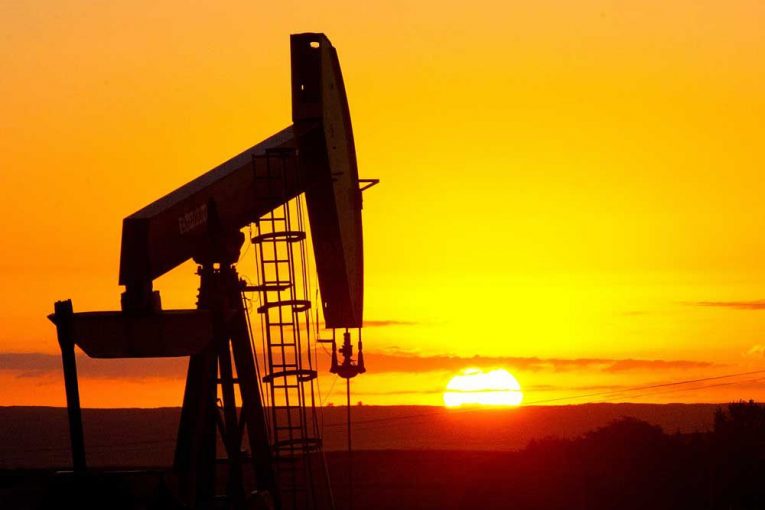
How fast can it go from 60 to 0, and back to 60 again? It’s something you would expect a car buff to ask about braking and acceleration. But what if we’re talking about oil? Remarkably, the price of a barrel clocked just that in about a year: US$60 per barrel in January 2020, US$0 by April, and back to US$60 in February 2021.
For the energy industry, the events of the past 12 months have been a thought experiment turned real. Before the pandemic, pundits could only speculate what might happen when people stop using petroleum and prices collapse.
Now we know.
Here are nine lessons we have learned about the implications of transforming our energy systems.
#1. The scale of our oil use is daunting
By April 2020, air travel was curtailed by as low as 5 per cent of normal, and freeways were emptied. Yet, at the lockdown’s most constrained point, oil consumption dropped by only about 20 per cent, to 80 million barrels a day. This was essentially a simulation of what would happen if one-third of the world’s cars and 95 per cent of its airplanes were suddenly converted to electric propulsion.
This is a stark and daunting reality.
We just caught a glimpse of how painful it is to reduce significant volumes of oil consumption through forced behavioural change. Based on International Energy Agency estimates, working on the expected timeline of the Paris Agreement that aims to mitigate the impact of climate change, we are on track to achieve the same 20 per cent reduction by 2033. That isn’t a lot of time for the kind of large-scale technology adoption required to displace our incumbent oil systems. So, what does that say about the need for behavioural change?

#2. Our behaviour can change — with tech
Being locked down has forced us to accelerate the adoption of lifestyle-altering technologies and activities. And tech companies rallied to fill the need incredibly fast. Some changes will be permanent. For instance, the vaccine won’t inoculate society against video meetings or online shopping.
It’s hard to say what the permanent impact of pandemic-induced technology will be on our energy use, but what we have learned is that tech products can alter the way we live, work and play, almost overnight. So, sure, offering direct substitutes for oil-based systems, such as electric vehicles, is important for decarbonization. But perhaps just as powerful will be the yet-to-come technologies that address real needs, inspire behavioural change and alter our social paradigm.
#3. Tech got its own shot in the arm
Tech companies such as Amazon.com Inc., Zoom Video Communications Inc. and Netflix Inc. proved they could change the world quickly. Investors in the stock market rewarded them and countless others handsomely. And as oil was braking to $0, investors asked what other tech companies could change the world.
Just as the pandemic has demonstrated that the incumbent oil is hard to shake, it has strengthened its clean-tech challengers. With Tesla Inc. at the top, a rapid cascading effect is now in play. Investors are financing clean-tech companies far faster than any government stimulus program is right now. Real innovation happens when competition is fuelled with investor capital.
#4. Not all oil is the same
We tend to think of oil in broad strokes, yet its many grades are used to create diverse petroleum products, from jet fuel to asphalt. The pandemic was a blunt instrument on the industry. As such, the impacts varied. Personal transportation fuels were affected far more than those in other segments of the economy. So, when it comes to transition policies, oil shouldn’t be thought of as a singular commodity serving a uniform market. More nuanced policy instruments will be required.
#5. Darwin was right
The strong get stronger and the weak die off. Falling prices and bankruptcies culled the herd of oil and gas producers, starting with the high-cost laggards and the frail. Survivors consolidated, lowered their costs and became leaner and more efficient. The ones left standing are far more resilient to outside competition and displacement.
#6. Alberta’s oilsands aren’t the most vulnerable
The popular narrative has been that Alberta’s oilsands would be the first to go out of business when oil consumption dropped precipitously. In fact, not only did they survive, but their producers fared far better than their American peers. Whatever you think of the oilsands region, events of the past year should dispel any notion that it’s the world’s most vulnerable, high-cost producer.
#7. Price signals work, when they are loud enough
When the price of oil started sliding from US$60 per barrel, drilling rigs started getting mothballed. When US$30 was breached, wells began to be shut in. Oil output contracted to adapt to the lower consumption. In the United States alone, at the height of the shut-ins, production dropped by almost 25 per cent, or three million barrels a day.
The current US$60+ prices are a siren call to bring on more production. At a time when investors are demanding greater profits in lieu of higher output, is this hardened industry responding to that call? No, current indicators suggest the price signal isn’t loud enough yet.
#8. OPEC still pulls the strings
A year ago, Saudi Arabia flooded the market and started a price war. A few months later, the kingdom and the OPEC cartel reined in production to prop up price. These geopolitical power plays demonstrated — yet again — that oil is not a free-market commodity.
Clean-energy challengers should know that their competitors will continue to control price to suit their interests. Defending market share, maximizing revenue and locking out new entrants has always been a global blood sport in this multi-trillion-dollar industry.
#9. We like clean air and water
When the world paused, many people experienced what it was like to have blue skies and clear water. A heightened sense of the environment and community preservation emerged. Fossil fuels will be with us for decades yet, but this taste of sustainability will galvanize the resolve to clean up our energy systems, whatever the source.
The pandemic turned a thought experiment about the oil industry into an actual test drive — its lessons should inform us about how to better navigate our energy future.
Peter Tertzakian is Deputy Director of the ARC Energy Research Institute and Founder of Energyphile (www.energyphile.org) in Calgary, Alberta .
You can read more of the news on source
